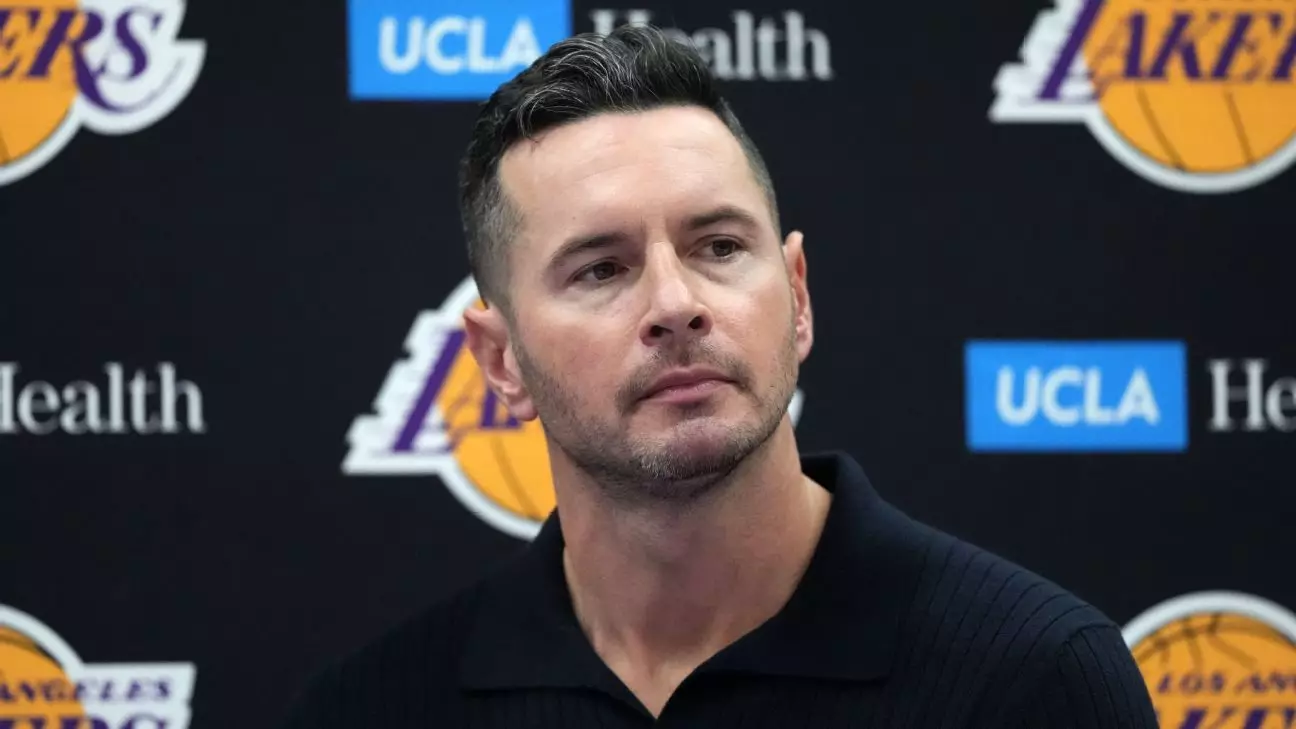In the world of professional sports, the transition from player or media personality to coach is often fraught with complexities. This has become particularly visible with JJ Redick’s recent move to become the head coach of the Los Angeles Lakers. As he embarks on this new journey, parallels to his past life as a media analyst—most notably his pointed critiques of former Clippers coach Doc Rivers—serve as a potent reminder of the tightrope coaches must walk when it comes to their past relationships within the league.
Before stepping into his new role, Redick had a reputation as a sharp and insightful analyst on ESPN, where he often dissected players’ performances and coaches’ tactics. His critiques were not always gentle, particularly when analyzing the Bucks’ struggles post-Rivers’ appointment. Redick’s vocal perspective on the challenges of a midseason coaching change highlighted his understanding of the complexities involved, yet it also showcased the ease with which media figures can dissect those in high-pressure positions without experiencing the same stakes themselves.
As Redick approached his first game as a head coach—facing off against his old mentor—he acknowledged this precarious interaction between former roles. “I don’t carry beef with people,” he noted, while simultaneously expressing a regret for his tone during a previous critical segment on First Take. This admission illuminates the fine line that former analysts must tread when they transition into coaching, where their words can have immediate and lasting ramifications on their professional relationships.
Doc Rivers, addressing the media, highlighted that any rift with Redick has been one-sided, emphasizing the natural friction that sometimes exists between coach and player. In the realm of coaching, Rivers pointedly mentioned that “coaches coach and they pour into players.” This phrase encapsulates the essence of the coaching profession—the commitment to nurturing talent, often regardless of personal feelings. Rivers’ assertion that love and support are sometimes rejected by players serves as a candid admission of the emotionally charged environment in which coaches operate.
Furthermore, Rivers recognized that player-coach dynamics are typically not black and white. Players occasionally misinterpret the effort and investment of their coaches, leading to discord. This complexity is especially pertinent in an environment as high-pressure as the NBA, where every decision and move is scrutinized, both by the media and fans.
The narrative continues as the coaching carousel spins. Darvin Ham, Redick’s predecessor, now serves as an assistant coach for the Bucks. His insights regarding his departure from the Lakers mirror Redick’s admission of the unique challenges that come with coaching. Reflecting on his own experiences, Ham expressed gratitude for the opportunity to influence the Lakers despite the eventual firing after a relatively brief tenure.
Each coach’s experience highlights the inherent struggles linked with team performance and how public opinions can swiftly shift. Players’ comments during media day, suggesting that they felt they were “winging it” under Ham, underscore the sometimes tumultuous interplay between player feedback and coaching effectiveness. Such statements can serve as barbs in a coach’s career but often stem from frustration and a desire for clarity in a high-stakes environment.
Understanding the broader implications of Redick’s transition into coaching alongside Rivers’ insights provides a comprehensive picture of the NBA coaching landscape. This environment is characterized by evolving expectations and growing scrutiny, making it imperative for new coaches to navigate their history, both personal and professional, with their players mindfully.
For Redick, the journey signifies more than mere career advancement—it embodies a chance to reshape his narrative and enforce a disciplined strategy he has been advocating for during his analysis. His ability to manage past relationships while establishing himself as a credible leader will be crucial to his success. The NBA coaching dynamic remains a complicated tapestry of loyalty, performance, and growth, where the lessons learned often come from navigating past experiences with grace and wisdom.
As JJ Redick steps into the crucible of coaching, he carries with him the weight of his past as both a player and commentator. The lessons he imparts will shape not only the Lakers’ trajectory but also highlight the intricate fabric that binds former players and coaches in one of the most demanding environments in sports history. The intersection of critiquing and coaching offers a unique lens into how one must adapt in an ever-evolving game.


Leave a Reply